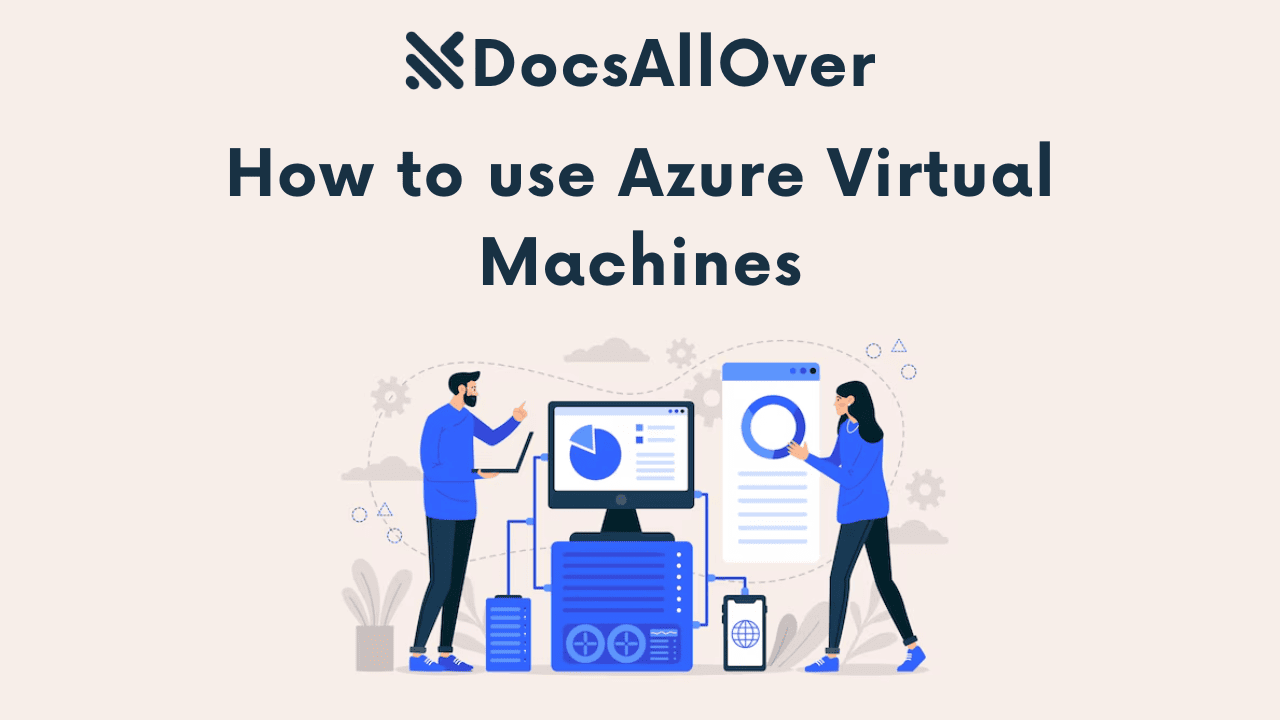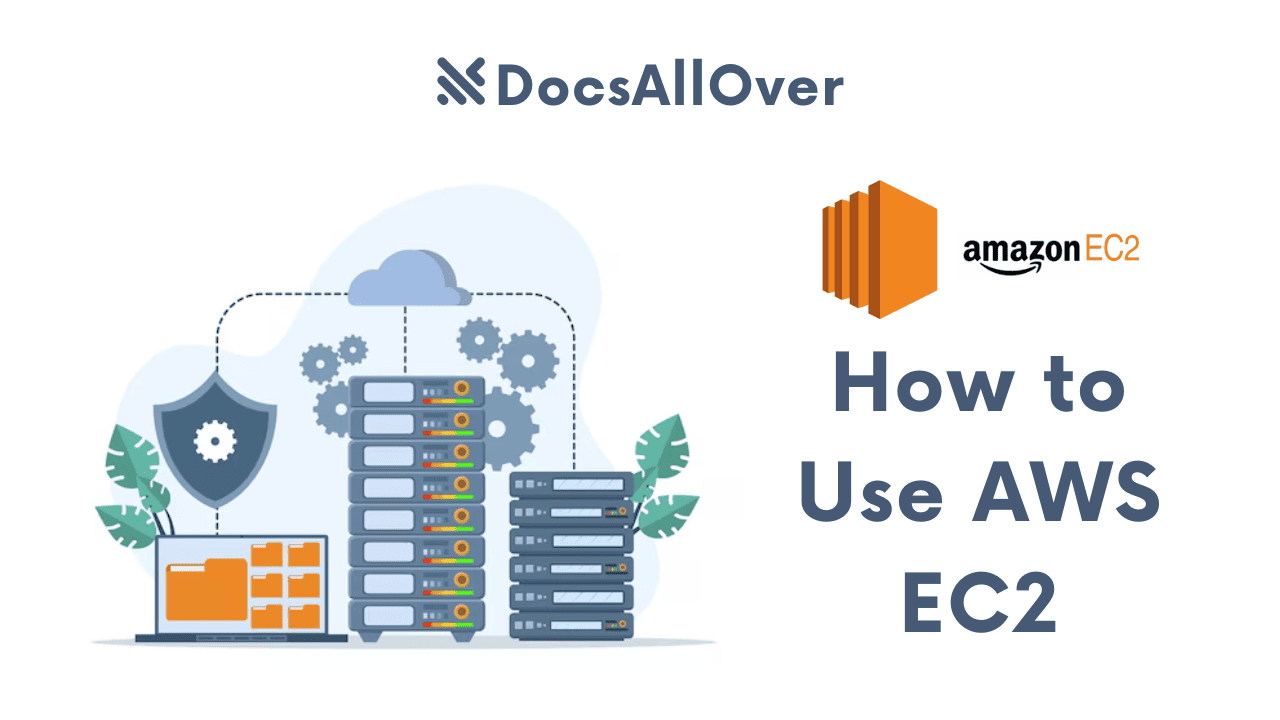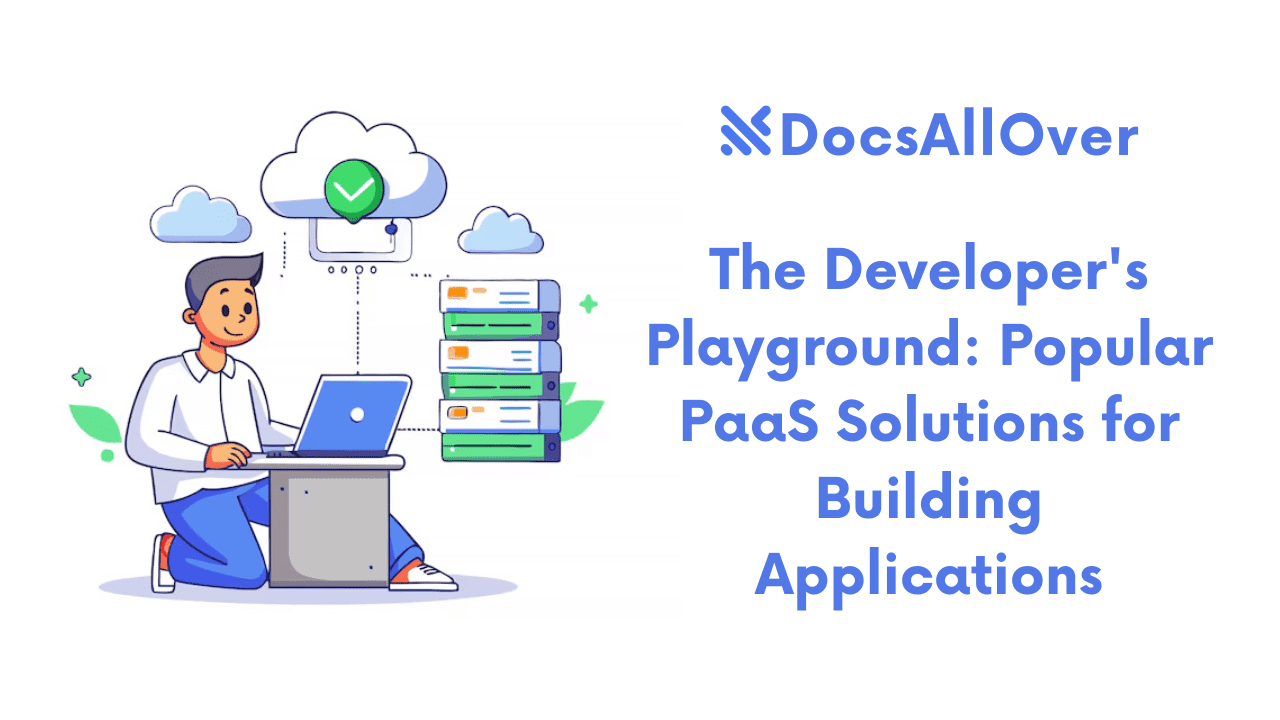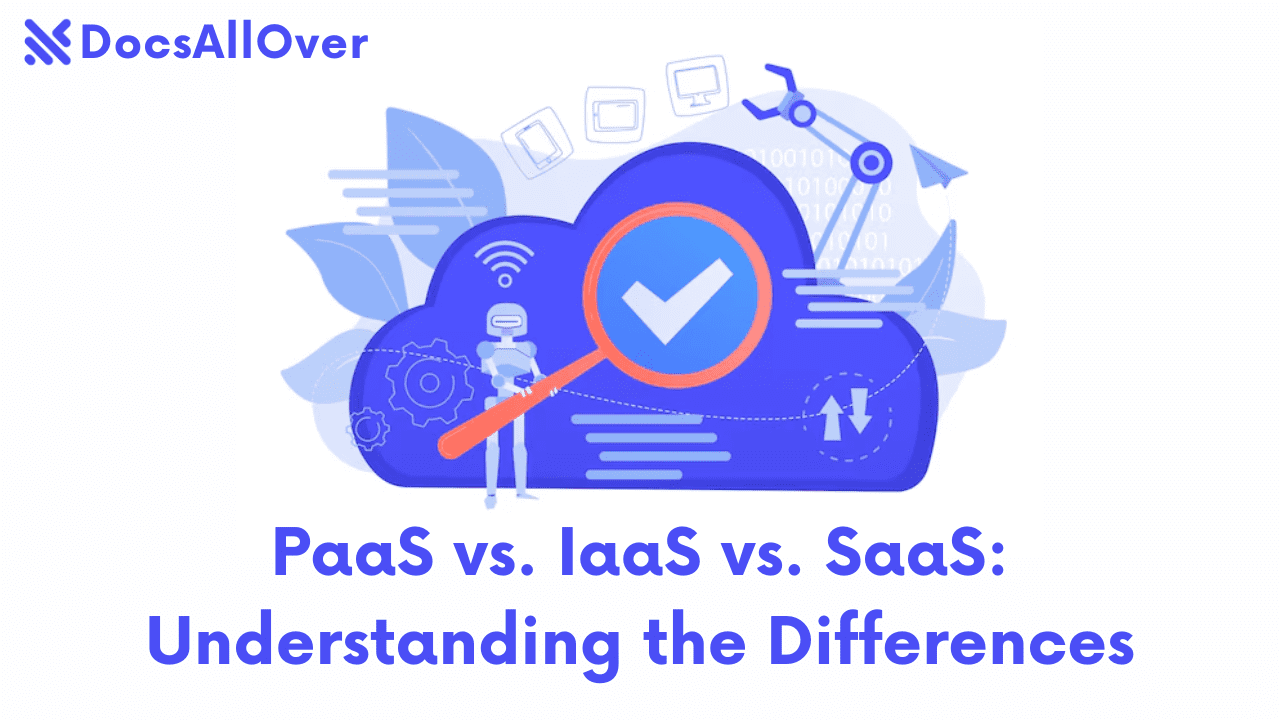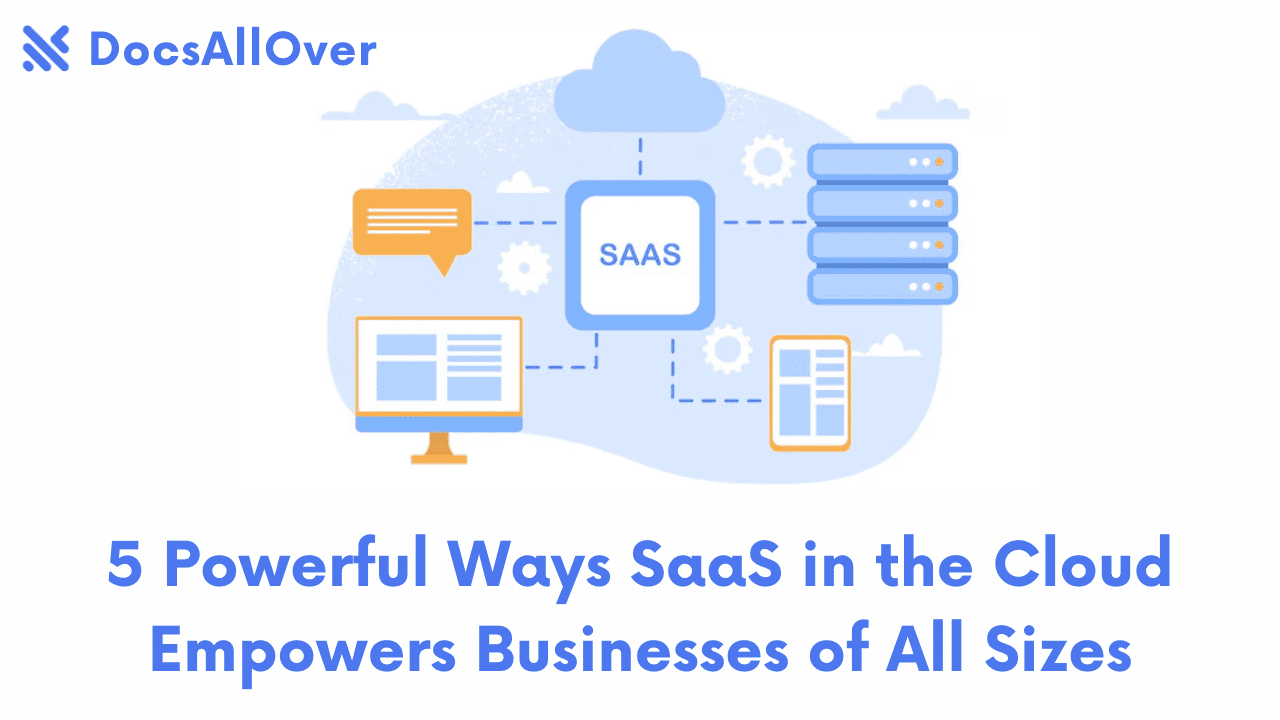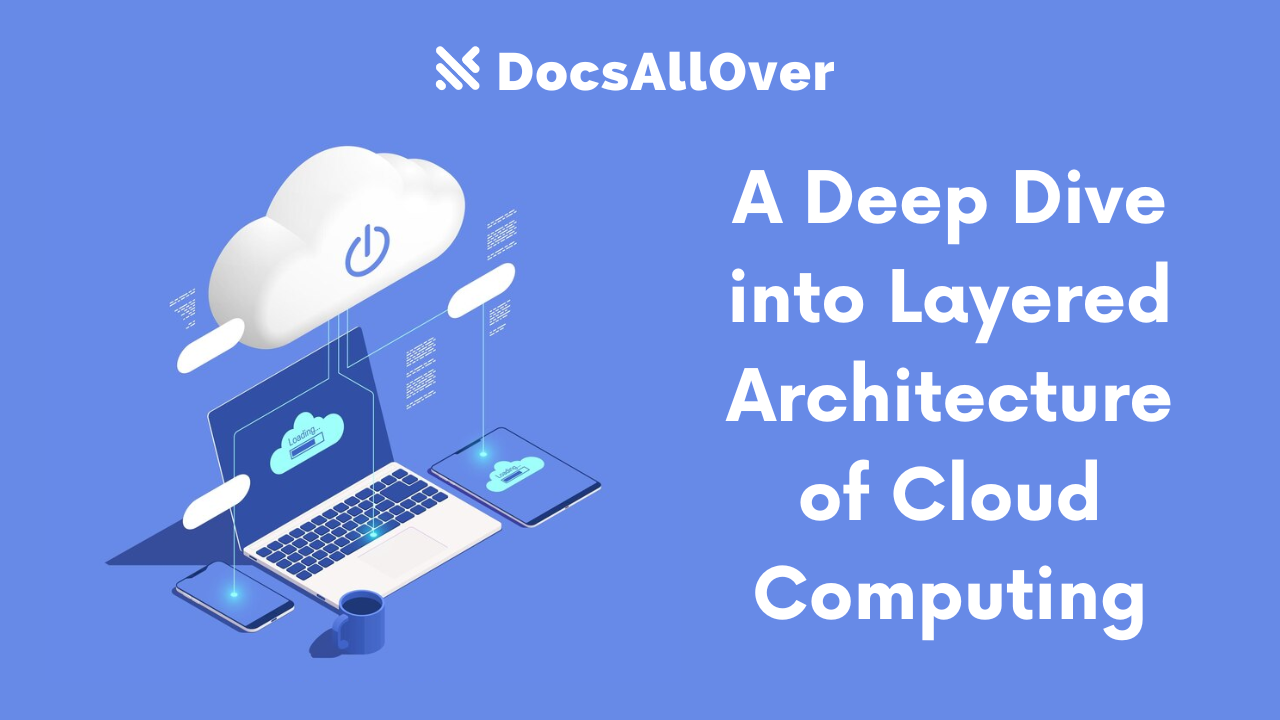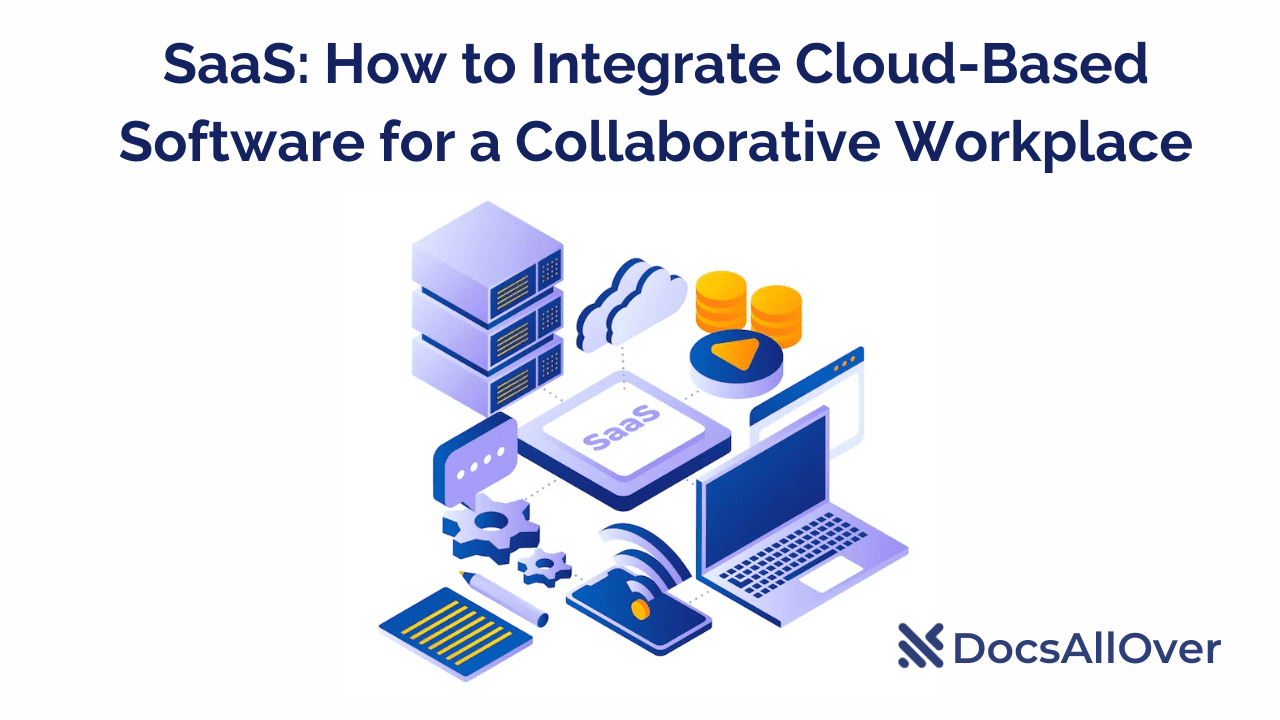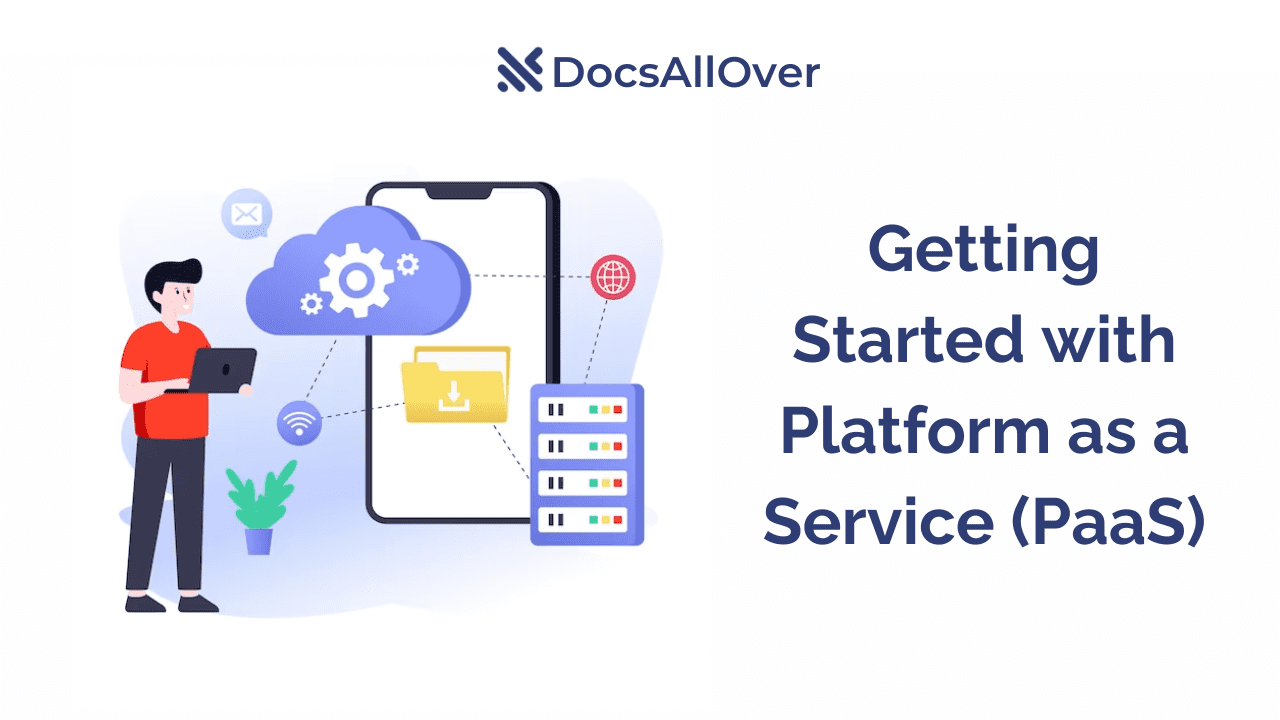How Real Businesses Are Using IaaS (Infrastructure as a Service) To Succeed
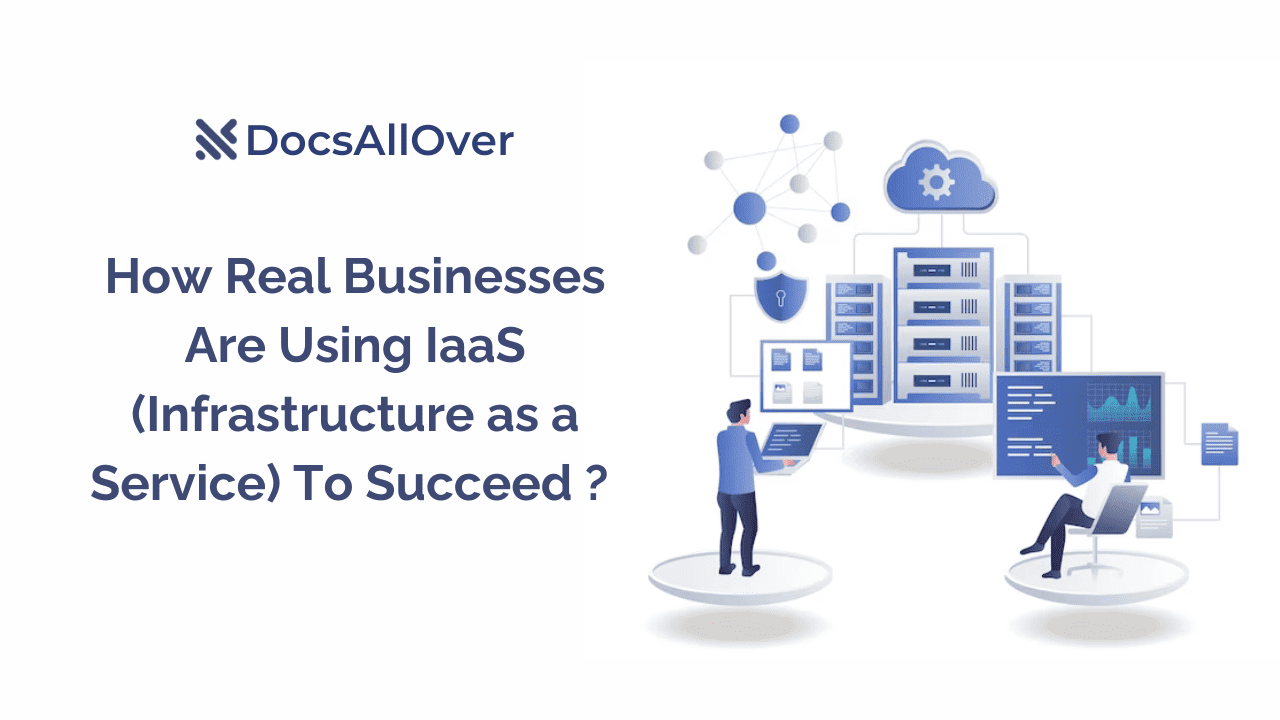
IaaS for Specific Workloads
Infrastructure as a Service (IaaS) is a cloud computing service that provides businesses with access to computing resources, such as servers, storage, and networking, on demand. IaaS is a pay-as-you-go service, so businesses only pay for the resources that they use.
Organizations choose IaaS because it is often easier, faster, and more cost-effective to operate a workload without having to purchase, manage, and support the underlying infrastructure. Instead, businesses can simply rent or lease the infrastructure from an IaaS provider.
IaaS is a good choice for workloads that are temporary, experimental, or that change unexpectedly. For example, a business developing a new software product might use IaaS to host and test the application. Once the software is tested and refined, the business can move it to a more traditional, in-house deployment or continue using IaaS if the costs are lower.
In general, IaaS customers pay on a per-user basis, typically by the hour, week, or month. Some IaaS providers also charge customers based on the amount of virtual machine space they use. This pay-as-you-go model eliminates the upfront capital expense of deploying in-house hardware and software.

IaaS can be used to support a wide range of workloads, including:
Web Hosting
IaaS is a popular choice for web hosting, as it offers a scalable and cost-effective way to host websites and web applications. IaaS providers offer a variety of services that are ideal for web hosting, such as compute, storage, and networking.
For example, a company can use IaaS to host a high-traffic website that needs to be able to handle a large number of visitors. The company can scale its resources up or down as needed, and only pay for the resources that it uses. This can help the company to save money and improve agility.
Benefits of using IaaS for web hosting:
- Scalability: IaaS is a scalable platform, so businesses can quickly and easily scale their web hosting resources up or down as needed. This is important for businesses with seasonal traffic spikes or businesses that are growing rapidly.
- Cost savings: IaaS can help businesses to save money on their web hosting costs. IaaS is a pay-as-you-go service, so businesses only pay for the resources that they use. Additionally, IaaS providers often offer discounts for long-term contracts and for businesses that commit to a certain level of usage.
- Reliability: IaaS providers offer high levels of reliability for their web hosting services. IaaS providers have redundant infrastructure and they monitor their systems 24/7 to ensure that their customers' websites are always up and running.
- Security: IaaS providers offer a variety of security features to protect their customers' websites. IaaS providers typically offer features such as firewalls, intrusion detection systems, and data encryption.
- Agility: IaaS can help businesses to be more agile. Businesses can quickly provision and deploy new web hosting resources using IaaS. This can help businesses to quickly launch new websites or to scale their existing websites to meet demand.
- Global reach: IaaS providers have data centers located around the world. This allows businesses to host their websites in the regions that are most important to them. This can help to improve website performance and reliability for users in those regions.
- Compliance: IaaS providers can help businesses to comply with industry regulations. IaaS providers typically offer a variety of compliance features, such as data encryption and access control.
- Innovation: IaaS providers are constantly innovating and adding new features to their services. This allows businesses to benefit from the latest web hosting technologies without having to invest in their own infrastructure.
- Support: IaaS providers offer a variety of support options to their customers. IaaS providers typically offer 24/7 support via phone, email, and chat.
- Choice: There are a variety of IaaS providers to choose from. This gives businesses the flexibility to choose the provider that best meets their needs.
Examples of Companies Using IaaS for Web hosting
1. Netflix
Netflix is a global streaming service that provides on-demand access to a wide variety of TV shows, movies, and other videos. Netflix is one of the largest users of IaaS in the world, and it relies on IaaS to power its global streaming platform.
Netflix uses a variety of IaaS services from AWS, including compute, storage, and networking. Netflix uses AWS EC2 instances to host its web servers and streaming servers. Netflix also uses AWS S3 to store its video content. Netflix uses AWS CloudFront to deliver its video content to users around the world.
Netflix has benefited from using IaaS in a number of ways. First, IaaS has helped Netflix to scale its operations rapidly. Netflix can quickly provision new resources from AWS as needed to meet the demands of its growing user base. Second, IaaS has helped Netflix to improve its reliability. AWS offers a highly reliable and scalable infrastructure, which helps Netflix to ensure that its streaming service is available to users 24/7. Third, IaaS has helped Netflix to reduce its costs. Netflix only pays for the resources that it uses, which helps it to save money on its hosting costs.
2. Airbnb
Airbnb is a global online marketplace that allows people to list and book accommodations. Airbnb is one of the largest users of IaaS in the world, and it relies on IaaS to power its global platform.
Airbnb uses a variety of IaaS services from Azure, including compute, storage, and networking. Airbnb uses Azure VMs to host its web servers and application servers. Airbnb also uses Azure Blob Storage to store its user data and listing data. Airbnb uses Azure Content Delivery Network (CDN) to deliver its static content to users around the world.
Airbnb has benefited from using IaaS in a number of ways. First, IaaS has helped Airbnb to scale its operations rapidly. Airbnb can quickly provision new resources from Azure as needed to meet the demands of its growing user base. Second, IaaS has helped Airbnb to improve its reliability. Azure offers a highly reliable and scalable infrastructure, which helps Airbnb to ensure that its platform is available to users 24/7. Third, IaaS has helped Airbnb to reduce its costs. Airbnb only pays for the resources that it uses, which helps it to save money on its hosting costs.
3. Amazon
Amazon is a global e-commerce company that sells a wide variety of products online. Amazon is one of the largest users of IaaS in the world, and it relies on IaaS to power its e-commerce platform.
Amazon uses a variety of IaaS services from AWS, including compute, storage, networking, and databases. Amazon uses AWS EC2 instances to host its web servers and application servers. Amazon also uses AWS S3 to store its product images and other static content. Amazon uses AWS RDS to host its relational databases. Amazon uses AWS DynamoDB to host its NoSQL databases.
Amazon has benefited from using IaaS in a number of ways. First, IaaS has helped Amazon to scale its operations rapidly. Amazon can quickly provision new resources from AWS as needed to meet the demands of its growing customer base. Second, IaaS has helped Amazon to improve its reliability. AWS offers a highly reliable and scalable infrastructure, which helps Amazon to ensure that its e-commerce platform is available to customers 24/7. Third, IaaS has helped Amazon to reduce its costs. Amazon only pays for the resources that it uses, which helps it to save money on its hosting costs.
4. Google
Google is a global technology company that offers a wide range of products and services, including search, advertising, cloud computing, and hardware. Google is one of the largest users of IaaS in the world, and it relies on IaaS to power its global infrastructure.
Google uses a variety of IaaS services from GCP, including compute, storage, networking, and databases. Google uses GCP Compute Engine to host its web servers and application servers. Google also uses GCP Cloud Storage to store its data. Google uses GCP Cloud Load Balancing to distribute traffic across its servers. Google uses GCP Cloud SQL to host its relational databases.
Google has benefited from using IaaS in a number of ways. First, IaaS has helped Google to scale its operations rapidly. Google can quickly provision new resources from GCP as needed to meet the demands of its growing user base. Second, IaaS has helped Google to improve its reliability. GCP offers a highly reliable and scalable infrastructure, which helps Google to ensure that its services are available to users 24/7. Third, IaaS has helped Google to reduce its costs. Google only pays for the resources that it uses, which helps it to save money on its hosting costs.
5. Facebook
Facebook is a social networking giant that uses IaaS to power its global operations. Facebook uses AWS to host its website, process user data, and run its cloud computing business, Facebook for Developers. Facebook also uses AWS to run its other products and services, such as Instagram, WhatsApp, and Messenger.
One of the key benefits of using IaaS for Facebook is that it allows the company to scale its infrastructure up or down as needed. This is important for Facebook because its traffic fluctuates depending on the time of day and the popularity of different events. By using IaaS, Facebook can avoid overprovisioning its infrastructure and wasting money.
Another benefit of using IaaS for Facebook is that it allows the company to focus on its core business of connecting people with each other. Facebook does not have to worry about managing its own infrastructure, which frees up its resources to focus on developing new features and improving the user experience.
6. Walmart
Walmart is one of the largest retailers in the world, and it uses IaaS to support its big data operations. Walmart collects a massive amount of data from its stores and online operations, and it uses this data to improve its supply chain, customer service, and marketing campaigns.
Walmart uses IaaS to store and process its big data. IaaS provides Walmart with the scalability and flexibility that it needs to handle its massive data volumes. IaaS also allows Walmart to quickly provision and deploy new resources as needed.
Walmart uses IaaS for a variety of big data workloads, including:
- Supply chain management: Walmart uses IaaS to analyze its supply chain data to identify inefficiencies and improve its logistics operations.
- Customer service: Walmart uses IaaS to analyze its customer data to understand customer preferences and improve the customer experience.
- Marketing campaigns: Walmart uses IaaS to analyze its customer data to target its marketing campaigns more effectively.
Walmart has been able to achieve significant benefits from its use of IaaS for big data. For example, Walmart has been able to reduce its supply chain costs by billions of dollars and improve its customer service ratings.
7. Spotify
Spotify is a music streaming service that has over 180 million active users. Spotify uses IaaS to support its big data operations. Spotify collects a massive amount of data from its users, and it uses this data to improve its music recommendations, personalize the user experience, and develop new features.
Spotify uses IaaS to store and process its big data. IaaS provides Spotify with the scalability and flexibility that it needs to handle its massive data volumes. IaaS also allows Spotify to quickly provision and deploy new resources as needed.
Spotify uses IaaS for a variety of big data workloads, including:
- Music recommendations: Spotify uses IaaS to analyze its user data to generate personalized music recommendations.
- Personalization: Spotify uses IaaS to analyze its user data to personalize the user experience, such as by creating custom playlists.
- Feature development: Spotify uses IaaS to analyze its user data to identify new features that users would like to see.
Spotify has been able to achieve significant benefits from its use of IaaS for big data. For example, Spotify has been able to increase its user engagement and reduce its churn rate.
8. Nike
Nike is a sportswear company that uses IaaS to support its big data operations. Nike collects a massive amount of data from its products, athletes, and customers, and it uses this data to improve its product development, marketing campaigns, and customer service.
Nike uses IaaS to store and process its big data. IaaS provides Nike with the scalability and flexibility that it needs to handle its massive data volumes. IaaS also allows Nike to quickly provision and deploy new resources as needed.
Nike uses IaaS for a variety of big data workloads, including:
- Product development: Nike uses IaaS to analyze its data to identify trends and develop new products that meet the needs of its customers.
- Marketing campaigns: Nike uses IaaS to analyze its data to target its marketing campaigns more effectively.
- Customer service: Nike uses IaaS to analyze its data to improve its customer service and support.
Nike has been able to achieve significant benefits from its use of IaaS for big data. For example, Nike has been able to reduce its product development time by 50%.
9. General Electric (GE)
General Electric (GE) is a multinational industrial company that provides jet engines, power generation equipment, healthcare equipment, and other industrial products and services. GE uses IaaS to support its big data operations.
GE collects a massive amount of data from its products, sensors, and customers. This data includes information about the performance of GE's products, the operating conditions of GE's products, and customer feedback. GE uses this data to improve its product development, supply chain, and maintenance operations.
GE uses IaaS to store and process its big data. IaaS provides GE with the scalability and flexibility that it needs to handle its massive data volumes. IaaS also allows GE to quickly provision and deploy new resources as needed.
GE uses IaaS for a variety of big data workloads, including:
- Predictive maintenance: GE uses IaaS to analyze its data to predict when its machines are likely to fail and to schedule preventive maintenance. This helps GE to avoid costly downtime and to improve the reliability of its products.
- Product development: GE uses IaaS to analyze its data to identify trends and to develop new products that meet the needs of its customers. For example, GE uses IaaS to analyze data from its jet engines to develop new engines that are more fuel-efficient and less polluting.
Supply chain optimization: GE uses IaaS to analyze its data to improve its supply chain and logistics operations. For example, GE uses IaaS to optimize the transportation of its products from its factories to its customers.
GE has been able to achieve significant benefits from its use of IaaS for big data. For example, GE has been able to reduce its maintenance costs by billions of dollars and to improve the reliability of its products.
10. Uber
Uber is a ride-hailing company that operates in over 70 countries. Uber uses IaaS to support its big data operations.
Uber collects a massive amount of data from its riders and drivers. This data includes information about the location of riders and drivers, the routes that drivers take, and the pricing of rides. Uber uses this data to improve its rider experience, driver efficiency, and pricing strategy.
Uber uses IaaS to store and process its big data. IaaS provides Uber with the scalability and flexibility that it needs to handle its massive data volumes. IaaS also allows Uber to quickly provision and deploy new resources as needed.
Uber uses IaaS for a variety of big data workloads, including:
- Demand forecasting: Uber uses IaaS to analyze its data to forecast demand for rides in different locations and at different times. This helps Uber to ensure that there are enough drivers available to meet demand.
- Route optimization: Uber uses IaaS to analyze its data to optimize the routes that drivers take. This helps Uber to reduce the time and cost of rides.
- Pricing: Uber uses IaaS to analyze its data to set optimal prices for rides. This helps Uber to maximize its revenue and to make rides more affordable for riders.
Uber has been able to achieve significant benefits from its use of IaaS for big data. For example, Uber has been able to reduce its ride times, improve its driver efficiency, and increase its revenue.
Machine Learning
IaaS is a popular choice for machine learning development and deployment because it provides the necessary compute resources and storage to train and deploy machine learning models. IaaS providers offer a variety of services for machine learning, such as GPU clusters, machine learning frameworks, and managed machine learning services.
Benefits of using IaaS for web hosting:
- Faster experimentation: IaaS makes it easy to experiment with different machine learning algorithms and models. Businesses can quickly provision and deploy new resources, and they can scale resources up or down as needed. This allows businesses to experiment with different machine learning approaches more quickly and efficiently.
- Increased collaboration: IaaS makes it easy for businesses to collaborate on machine learning projects. Businesses can share resources and data with each other, and they can work on projects together in real time. This can help businesses to develop and deploy machine learning models more quickly and efficiently.
- Improved reproducibility: IaaS makes it easier to reproduce machine learning experiments. Businesses can save and share their machine learning environments, which makes it easier to reproduce experiments and to compare results. This can help businesses to improve the reliability of their machine learning models.
- Reduced risk: IaaS can help businesses to reduce the risk of deploying machine learning models. Businesses can test and validate their machine learning models in a sandbox environment before deploying them to production. This can help businesses to identify and fix problems with their models before they are deployed to production.
- Simplified compliance: IaaS can help businesses to simplify compliance with data protection and privacy regulations. IaaS providers offer a variety of compliance certifications, such as SOC 2 and HIPAA. This can help businesses to ensure that their machine learning workloads are compliant with relevant regulations.
- Enhanced security: IaaS providers offer a variety of security features and services that can help businesses to protect their machine learning workloads. These features and services can help businesses to detect and prevent cyberattacks, and to protect their data from unauthorized access.
- Improved disaster recovery: IaaS can help businesses to improve their disaster recovery capabilities. IaaS providers offer a variety of disaster recovery services, such as replication and backup. This can help businesses to recover their machine learning workloads quickly and efficiently in the event of a disaster.
- Reduced environmental impact: IaaS can help businesses to reduce their environmental impact. IaaS providers use a variety of energy-efficient technologies, and they are committed to reducing their carbon footprint. This can help businesses to reduce the environmental impact of their machine learning workloads.
- Cost-effective innovation: IaaS can help businesses to innovate more cost-effectively. Businesses can use IaaS to prototype and test new machine learning applications without having to invest in their own infrastructure. This can help businesses to bring new machine learning products and services to market more quickly and cost-effectively.
- Competitive advantage: IaaS can help businesses to gain a competitive advantage. Businesses that are using machine learning to improve their products and services are more likely to be successful in the market. IaaS can help businesses to get started with machine learning and to scale their machine learning workloads as needed.
Examples of Companies Using IaaS for Machine Learning
1. Google
Google is one of the leading companies in the world using machine learning, and it uses IaaS to power its many machine learning applications. Google uses IaaS to train and deploy machine learning models for a variety of tasks, including:
- Search: Google uses machine learning to rank search results and to provide personalized search results to users.
- Translation: Google uses machine learning to translate text between different languages.
- Image recognition: Google uses machine learning to identify objects in images and videos.
- Speech recognition: Google uses machine learning to transcribe speech to text.
- Natural language processing: Google uses machine learning to understand and generate human language.
Google uses a variety of IaaS services to power its machine learning applications, including:
- Compute: Google uses IaaS compute services to train and deploy its machine learning models.
- Storage: Google uses IaaS storage services to store its training data and model files.
- Networking: Google uses IaaS networking services to connect its machine learning applications to its other systems and services.
2. Amazon
Amazon is another leading company in the world using machine learning, and it uses IaaS to power its many machine learning applications. Amazon uses IaaS to train and deploy machine learning models for a variety of tasks, including:
- Product recommendations: Amazon uses machine learning to recommend products to customers based on their past purchase history and browsing behavior.
- Fraud detection: Amazon uses machine learning to detect fraudulent transactions and to protect its customers from fraud.
- Supply chain optimization: Amazon uses machine learning to optimize its supply chain and to ensure that products are delivered to customers on time.
- Product development: Amazon uses machine learning to develop new products and features that meet the needs of its customers.
Amazon uses a variety of IaaS services to power its machine learning applications, including:
- Compute: Amazon uses AWS EC2 to train and deploy its machine learning models.
- Storage: Amazon uses AWS S3 to store its training data and model files.
- Networking: Amazon uses AWS VPC to connect its machine learning applications to its other systems and services.
3. Microsoft
Microsoft is another leading company in the world using machine learning, and it uses IaaS to power its many machine learning applications. Microsoft uses IaaS to train and deploy machine learning models for a variety of tasks, including:
- Office productivity: Microsoft uses machine learning to improve the productivity of its Office suite of applications, such as Word, Excel, and PowerPoint.
- Cloud computing: Microsoft uses machine learning to improve the performance and reliability of its Azure cloud computing platform.
- Gaming: Microsoft uses machine learning to improve the realism and immersion of its video games.
- Customer service: Microsoft uses machine learning to improve its customer service and support.
Microsoft uses a variety of IaaS services to power its machine learning applications, including:
- Compute: Microsoft uses Azure VMs to train and deploy its machine learning models.
- Storage: Microsoft uses Azure Blob Storage to store its training data and model files.
- Networking: Microsoft uses Azure Virtual Network to connect its machine learning applications to its other systems and services.
4. Facebook
Facebook is a social media company that uses IaaS to power its many machine learning applications. Facebook uses IaaS to train and deploy machine learning models for a variety of tasks, including:
- News feed ranking: Facebook uses machine learning to rank the news feed that users see, so that they are more likely to see content that they are interested in.
- Friend recommendations: Facebook uses machine learning to recommend friends to users based on their mutual friends and interests.
- Image recognition: Facebook uses machine learning to identify objects in images and videos that users share.
- Fraud detection: Facebook uses machine learning to detect fraudulent accounts and activities on its platform.
Facebook uses a variety of IaaS services to power its machine learning applications, including:
- Compute: Facebook uses its own custom-built IaaS infrastructure to train and deploy its machine learning models.
- Storage: Facebook uses its own custom-built storage infrastructure to store its training data and model files.
- Networking: Facebook uses its own custom-built networking infrastructure to connect its machine learning applications to its other systems and services.
IaaS for Emerging Workloads: Gaming, Video Streaming
IaaS can be used for a variety of other workloads, such as gaming, video streaming, and enterprise resource planning (ERP).
- Gaming: IaaS can be used to host and deliver online games. IaaS providers offer a variety of services for gaming, such as dedicated servers, game engines, and managed gaming services.
- Video Streaming: IaaS can be used to host and deliver video streaming services. IaaS providers offer a variety of services for video streaming, such as video transcoding, video delivery networks (CDNs), and managed video streaming services.
- Enterprise Resource Planning (ERP): IaaS can be used to host and deliver ERP software. IaaS providers offer a variety of services for ERP, such as virtual machines, storage, and networking.
- High-performance computing (HPC): HPC is used for complex scientific and engineering simulations that require large amounts of computing power. HPC workloads can be run on IaaS to provide the scalability and flexibility that is needed for these demanding workloads.
- Scientific computing: Scientific computing is used to solve complex scientific problems, such as predicting weather patterns and simulating the behavior of molecules. Scientific computing workloads can be run on IaaS to provide the computing power and storage capacity that is needed for these workloads.
- Data warehousing: Data warehousing is used to store and analyze large amounts of data for business intelligence purposes. Data warehousing workloads can be run on IaaS to provide the scalability and flexibility that is needed for these demanding workloads.
- Business intelligence: Business intelligence is used to analyze data to gain insights into business operations and to make better decisions. Business intelligence workloads can be run on IaaS to provide the computing power and storage capacity that is needed for these workloads.
- Artificial intelligence (AI): AI is used to develop and deploy machine learning models that can be used to automate tasks, make predictions, and improve decision-making. AI workloads can be run on IaaS to provide the computing power and storage capacity that is needed for these workloads.
- Robotics: Robotics is used to develop and deploy robots that can perform tasks in a variety of environments. Robotics workloads can be run on IaaS to provide the computing power and storage capacity that is needed for these workloads.
- Internet of Things (IoT): IoT is used to connect devices to the internet and to collect data from these devices. IoT workloads can be run on IaaS to provide the computing power and storage capacity that is needed to process and analyze the data from these devices.
IaaS is a versatile platform that can be used for a wide range of workloads. By choosing the right IaaS provider and services, businesses can achieve their goals and objectives while saving money and improving agility.
Case study on Infrastructure as a Service (IaaS):
Case Study 1: How a Small Business Used IaaS to Reduce Its IT Costs by 50%
A small business that provides e-commerce services was struggling to keep up with its growing IT costs. The company's on-premises infrastructure was expensive to maintain and scale, and the company was finding it difficult to keep up with the latest technology trends.
The company decided to migrate its IT infrastructure to IaaS. This allowed the company to reduce its IT costs by 50%, while also improving scalability and agility. The company was also able to access the latest technology trends without having to invest in new hardware and software.
Case Study 2: How a Large Enterprise Used IaaS to Scale Its Big Data Processing Capabilities
A large enterprise company was struggling to scale its big data processing capabilities. The company's on-premises infrastructure was not able to handle the increasing volume of data that the company was collecting.
The company decided to migrate its big data processing to IaaS. This allowed the company to scale its resources up or down as needed, and to access the latest big data processing tools and technologies. The company was able to reduce its big data processing costs by 25%, and to improve the performance of its big data processing workloads.
Case Study 3: How a Machine Learning Startup Used IaaS to Accelerate Its Model Development and Deployment Pipeline
A machine learning startup was struggling to accelerate its model development and deployment pipeline. The startup's on-premises infrastructure was not able to handle the compute and storage requirements of its machine learning workloads.
The startup decided to migrate its machine learning workloads to IaaS. This allowed the startup to access the latest high-performance compute and storage resources, and to scale its resources up or down as needed. The startup was able to accelerate its model development and deployment pipeline by 50%.
IaaS can be used by businesses of all sizes to reduce IT costs, improve scalability and agility, and access the latest technology trends. IaaS is also a good choice for big data processing and machine learning workloads.
IaaS is a powerful tool that can help businesses to save money, improve agility, and scale their operations. Businesses should consider using IaaS to support their IT workloads and to achieve their business goals.
IaaS Trends
Trend 1: The Rise of Multi-Cloud and Hybrid Cloud Deployments
Multi-cloud and hybrid cloud deployments are becoming increasingly popular, as businesses look to leverage the best features and services from different IaaS providers. Multi-cloud deployments involve using two or more IaaS providers, while hybrid cloud deployments involve using a combination of on-premises and cloud-based resources.
There are a number of benefits to multi-cloud and hybrid cloud deployments, including:
- Increased agility: Multi-cloud and hybrid cloud deployments can help businesses to be more agile. Businesses can quickly provision and deploy resources from different providers, and they can scale their resources up or down as needed.
- Reduced costs: Multi-cloud and hybrid cloud deployments can help businesses to reduce costs. Businesses can take advantage of the best pricing and services from different providers.
- Improved reliability: Multi-cloud and hybrid cloud deployments can help businesses to improve reliability. If one provider experiences an outage, businesses can still access their resources from other providers.
Trend 2: The Increasing Adoption of IaaS for Containerized and Serverless Workloads
Containerized and serverless workloads are becoming increasingly popular, as they offer a number of benefits, such as scalability, portability, and agility.
Containerized workloads are packaged into containers, which are lightweight and portable units of software. Serverless workloads are executed on demand, and businesses only pay for the resources that they use.
IaaS is a good fit for containerized and serverless workloads because it provides a scalable and flexible platform for deploying and running these workloads.
Trend 3: The Growing Importance of IaaS for Artificial Intelligence (AI) and Machine Learning (ML) Workloads
AI and ML workloads are becoming increasingly important for businesses of all sizes. AI and ML workloads can be used to improve customer service, automate tasks, and make better business decisions.
IaaS is a good fit for AI and ML workloads because it provides a scalable and powerful platform for training and deploying AI and ML models.
Trend 4: The Emergence of New IaaS Providers and Services
The IaaS market is constantly evolving, and new providers and services are emerging all the time. This is giving businesses more choice and flexibility when it comes to choosing an IaaS provider.
Some of the new IaaS providers and services that are emerging include:
- Edge computing services: Edge computing services bring computing resources closer to the data source, which can improve performance and reduce latency for real-time applications.
- Bare metal services: Bare metal services give businesses direct access to the underlying hardware, which can provide better performance and security for certain workloads.
- Industry-specific IaaS services: New IaaS services are emerging that are tailored to the specific needs of different industries, such as healthcare, financial services, and retail.
These are just a few of the key trends that are shaping the IaaS market. Businesses should be aware of these trends so that they can make informed decisions about how to use IaaS to achieve their goals.
Specific IaaS Providers

- Amazon Web Services (AWS): AWS is the leading IaaS provider, offering a wide range of services, including compute, storage, networking, databases, machine learning, and more.
- Microsoft Azure: Azure is another leading IaaS provider, offering a similar range of services to AWS.
- Google Cloud Platform (GCP): GCP is a newer IaaS provider, but it is quickly gaining ground. GCP offers a similar range of services to AWS and Azure, with a focus on innovation and machine learning.
- Alibaba Cloud: Alibaba Cloud is the leading IaaS provider in China, and it is also expanding its global reach. Alibaba Cloud offers a wide range of services, including compute, storage, networking, databases, machine learning, and more.
- IBM Cloud: IBM Cloud is a mature IaaS provider that offers a wide range of services, including compute, storage, networking, databases, machine learning, and more.
Specific IaaS Services:
- Compute: IaaS providers offer a variety of compute services, such as virtual machines, containers, and serverless computing.
- Storage: IaaS providers offer a variety of storage services, such as block storage, object storage, and file storage.
- Networking: IaaS providers offer a variety of networking services, such as load balancing, firewalls, and VPNs.
- Databases: IaaS providers offer a variety of database services, such as relational databases, NoSQL databases, and in-memory databases.
- Machine learning: IaaS providers offer a variety of machine learning services, such as pre-trained models, machine learning frameworks, and machine learning tools.
Specific Industries:
IaaS can be used in a wide range of industries, including:
- Healthcare: IaaS can be used to host and run healthcare applications, such as electronic health records (EHRs) and patient portals. IaaS can also be used to store and analyze healthcare data.
- Financial services: IaaS can be used to host and run financial services applications, such as trading platforms and risk management systems. IaaS can also be used to store and analyze financial data.
- Retail: IaaS can be used to host and run e-commerce platforms and customer relationship management (CRM) systems. IaaS can also be used to store and analyze customer data.
- Manufacturing: IaaS can be used to host and run manufacturing applications, such as product lifecycle management (PLM) systems and supply chain management (SCM) systems. IaaS can also be used to store and analyze manufacturing data.
These are just a few examples of how IaaS can be used in specific industries. IaaS is a versatile platform that can be used to support a wide range of workloads and applications.
IaaS is a powerful tool that can help businesses of all sizes to save money, improve agility, and scale their operations. IaaS providers offer a wide range of services, including compute, storage, networking, databases, and machine learning. IaaS can be used in a wide range of industries, including healthcare, financial services, retail, and manufacturing.


